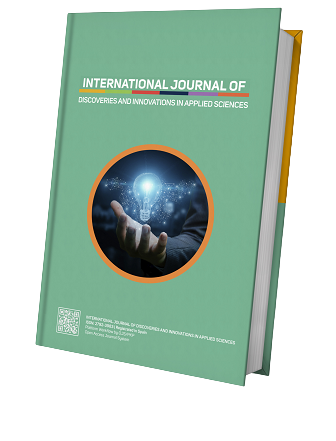Stimulating Regional Economic Growth through Free Economic Zones: Uzbekistan's Experience and World Practices
Keywords:
free economic zones (FEZ), economic growth, foreign investments, Uzbekistan, international experience, tax benefits, customs preferences, infrastructure support, specialization of FEZ, state supportAbstract
The article is devoted to the analysis of free economic zones (FEZ) as a tool for stimulating economic growth on the example of Uzbekistan and comparison with international experience. The paper examines the main aspects of the functioning of FEZ in Uzbekistan, including the legal framework, tax and customs benefits, infrastructure support and specialization of zones. Comparative analysis with FEZ management practices in other countries, such as China and the UAE, identifies key success factors and possible areas for improvement for Uzbekistan. The article is aimed at researchers, politicians and practitioners interested in the development of FEZ as an instrument of economic policy.
References
Y. Song, “Effects of special economic zones on fdi in emerging economies: Does institutional quality matter?,” Sustainability (Switzerland), vol. 12, no. 20. pp. 1–21, 2020. doi: 10.3390/su12208409.
D. Ch. Boysunova, “The role of free economic zones in ensuring economic growth,” Экономика И Социум, vol. 1, no. 68, pp. 231–235, 2020.
S. S. Makhsudov, “Development of Free Economic Zones in the Conditions of Transformation of Market Relations,” Bull. Sci. Pract., no. 5, 2022.
E. Leclercq, “United Arab Emirates: The Corporate Tax Regime for Free Zones,” Bulletin for International Taxation, vol. 77, no. 11. pp. 526–544, 2023. doi: 10.59403/9fwrgs.
Azizov and partners, “Special Economic Zones in Uzbekistan,” Azizov and Partners. [Online]. Available: https://azizovpartners.uz
U. Umurzakov and U. Sangirova, Ekonomika APK, Uchebnoe posobie [Economics of the agro-industrial complex]. Tashkent: TIIMMSH, 2019.
T. Zhou, “Leveraging liminality: The border town of Bao’an (Shenzhen) and the origins of China’s reform and opening,” Journal of Asian Studies, vol. 80, no. 2. pp. 337–361, 2021. doi: 10.1017/S0021911821000012.
I. M. Mayorov and M. V. Shcheglov, “Free Economic Zones as an Instrument for Attracting Foreign Investments in the National Economy: Experience of China,” Fundam. Res., vol. 3, pp. 52–57, 2018.
S. Naeem, “Drivers and barriers for successful special economic zones (SEZs): Case of SEZs under china Pakistan economic corridor,” Sustainability (Switzerland), vol. 12, no. 11. 2020. doi: 10.3390/su12114675.
E. Hussain, “China–Pakistan Economic Cooperation: The Case of Special Economic Zones (SEZs),” Fudan Journal of the Humanities and Social Sciences, vol. 13, no. 4. pp. 453–472, 2020. doi: 10.1007/s40647-020-00292-5.
Pavia e Ansaldo, “Uzbekistan: Free Economic Zones,” Pavia e Ansaldo Studio Legale. [Online]. Available: https://www.pavia-ansaldo.it/en/uzbekistan-free-economic-zones/
United Nations Conference on Trade and Development, “Uzbekistan - Law on Special Economic Zones adopted,” UNCTAD Investment Policy Monitor. [Online]. Available: https://investmentpolicy.unctad.org/investment-policy-monitor/measures/3492/uzbekistan-law-on-special-economic-zones-adopted
Oliy Majlis of the Republic of Uzbekistan, Law of the Republic of Uzbekistan on Accounting. 2016.
President of the Republic of Uzbekistan, Five priority areas for the development of the Republic of Uzbekistan for 2017-2021: Strategy of action. 2017. [Online]. Available: https://lex.uz/docs/-3307879
President of the Republic of Uzbekistan, Strategy for the development of agriculture of the Republic of Uzbekistan for 2020-2030. 2019. [Online]. Available: lex.uz
President of the Republic of Uzbekistan, Decree of the President of the Republic of Uzbekistan On the new development strategy of Uzbekistan for 2022-2026. 2022. [Online]. Available: https://lex.uz/docs/-5841063
Oliy Majlis of the Republic of Uzbekistan, Law of the Republic of Uzbekistan on Special Economic Zones. 2020. [Online]. Available: https://lex.uz/docs/-4737511
President of the Republic of Uzbekistan, Address of the President of the Republic of Uzbekistan Shavkat Mirziyoyev to the Oliy Majlis. 2020.
R. Mogielnicki, “The dubai model and UAE free zones,” International Political Economy Series. pp. 49–87, 2021. doi: 10.1007/978-3-030-71274-7_3.
D. Zeng, “Building a competitive city through integrating into global value chains: The case of the sino–singapore suzhou industrial park,” China: An International Journal, vol. 17, no. 2. pp. 164–180, 2019.
M. Akhavan, “Economic diversification, freight flows and transnational expansion in dubai hub port-city,” SpringerBriefs in Applied Sciences and Technology. pp. 71–114, 2020. doi: 10.1007/978-3-030-52578-1_5.
S. Wang, “Analysis on geo-effects of China’s overseas industrial parks: A case study of Cambodia Sihanoukville Special Economic Zone,” Journal of Geographical Sciences, vol. 31, no. 5. pp. 712–732, 2021. doi: 10.1007/s11442-021-1867-3.
F. Teichmann, “Corruption and the circumvention of financial sanctions via the extractive industries in Dubai,” Extractive Industries and Society, vol. 7, no. 3. pp. 1022–1028, 2020. doi: 10.1016/j.exis.2020.05.006.
F. M. J. Teichmann, “Money laundering in the United Arab Emirates: the risks and the reality,” Journal of Money Laundering Control, vol. 26, no. 4. pp. 709–718, 2023. doi: 10.1108/JMLC-01-2022-0014.




